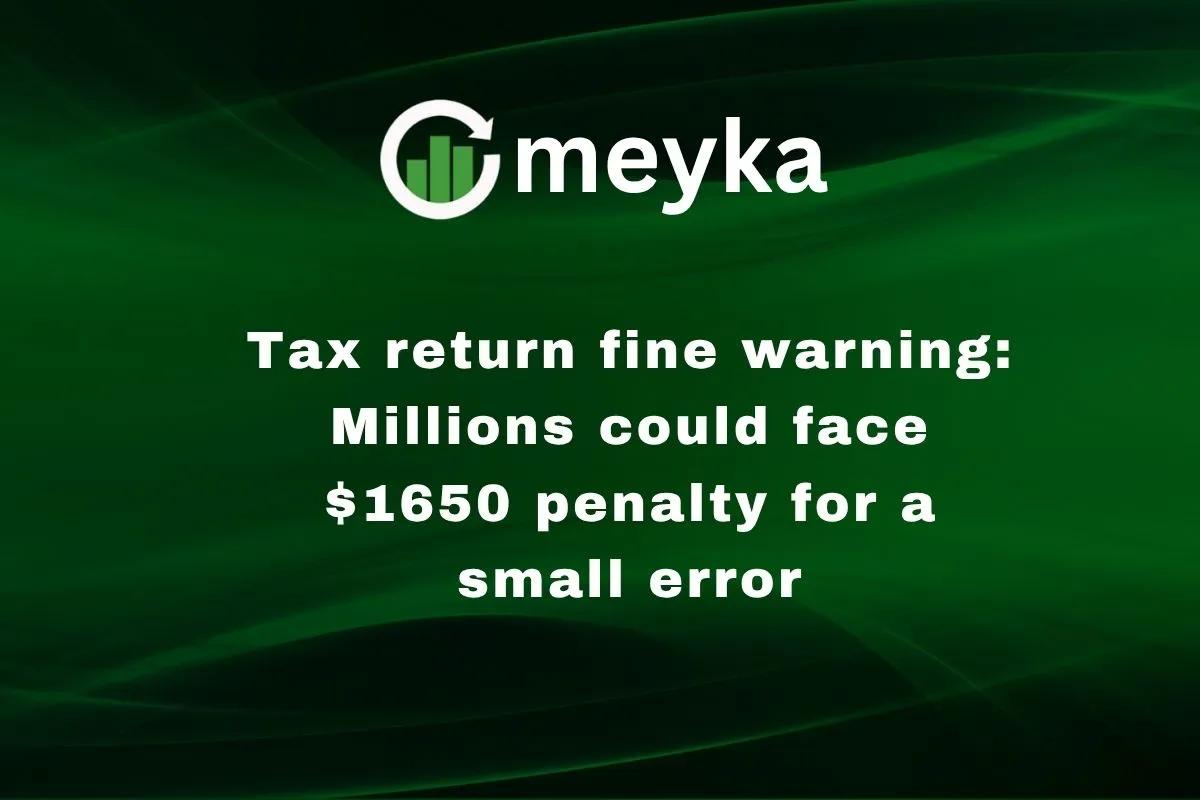Tax return fine warning: Millions could face $1650 penalty for a small error
Tax season is here, and with it comes the looming threat of penalties. Recent reports indicate that millions of taxpayers risk facing fines up to $1,650 due to minor errors on their tax returns. These fines can arise from simple mistakes, such as incorrect personal information or missing forms. Understanding how these penalties work and how to avoid them is crucial to ensure you don’t fall victim to unnecessary charges.
What Triggers the $1,650 Tax Penalty?
In Australia, the Australian Taxation Office (ATO) imposes a Failure to Lodge (FTL) penalty when individuals or businesses fail to submit their tax returns on time. The penalty is calculated using penalty units, with each unit currently valued at $330. For every 28-day period (or part thereof) that the return is overdue, an additional penalty unit is added. This means that if a return is 56 days late, the penalty would be $660, and if it’s 84 days late, the penalty would be $990. The maximum penalty for a single overdue return is capped at $1,650.
Who Is Most at Risk?
Certain groups are more susceptible to incurring these penalties:
- First-time Filers: Individuals filing their tax returns for the first time may be unfamiliar with the process and deadlines.
- Small Business Owners: Entrepreneurs juggling multiple responsibilities might overlook tax obligations.
- Freelancers and Contractors: Those without regular paychecks may struggle to keep track of tax deadlines.
- Individuals with Complex Financial Situations: People with multiple income sources or deductions might find tax filing more complicated.
For instance, over 2 million Australians are currently at risk of facing these penalties if they miss the upcoming tax deadline.
Consequences of the Fine
The immediate consequence of failing to lodge a tax return on time is the imposition of the FTL penalty. However, the repercussions don’t end there. Unpaid penalties accrue interest over time, increasing the total amount owed. Additionally, persistent non-compliance can lead to more severe actions, such as audits or legal proceedings.
How to Avoid Tax Return Errors
To steer clear of penalties, consider the following tips:
- Submit your tax return before the deadline to avoid any late penalties
- Double-Check Information: Verify all personal details, income figures, and deductions.
- Use Reliable Software: Utilize reputable tax preparation software to minimize errors.
- Seek Professional Help: Consult a tax professional if you’re unsure about any aspect of your tax return.
- Keep Records: Maintain organized records of all income and expenses throughout the year.
By taking these steps, you can significantly reduce the risk of making errors that lead to penalties.
Recent Trends and Enforcement
The ATO has been increasingly vigilant in enforcing tax compliance. With advancements in technology, the ATO can now cross-reference data more efficiently, identifying discrepancies and potential errors swiftly. This heightened scrutiny means that even minor mistakes are more likely to be detected, leading to penalties.
What to Do If You Receive a Fine
If you find yourself facing a penalty:
- Review the Notice: Carefully read the penalty notice to understand the reason for the fine.
- Check for Errors: Ensure that the information the ATO has is accurate.
- Pay Promptly: To avoid additional interest, pay the penalty as soon as possible.
- Appeal If Necessary: If you believe the penalty was applied in error or you have a valid reason for the delay, you can lodge an objection with the ATO.
The ATO provides guidance on how to handle penalties and the steps to take if you disagree with a penalty notice.
Conclusion
Tax return fines, especially those amounting to $1,650, can be a significant financial burden. However, by staying informed, being diligent, and seeking assistance when needed, you can navigate the tax season without falling prey to unnecessary penalties. Remember, timely and accurate tax filing is not just a legal obligation but also a step towards financial responsibility.
FAQS:
If you don’t file your tax return, you may face fines, interest on unpaid taxes, and possible legal action. It can also affect refunds or future benefits.
Yes, you can ask the tax office to reduce or remove penalties. You must explain your situation, show good reasons, and sometimes provide evidence of financial hardship.
You get a tax penalty for mistakes like missing forms, wrong numbers, late filing, or unpaid taxes. Even small errors can lead to fines from the tax office.
Disclaimer:
This content is for informational purposes only and is not financial advice. Always conduct your research.






